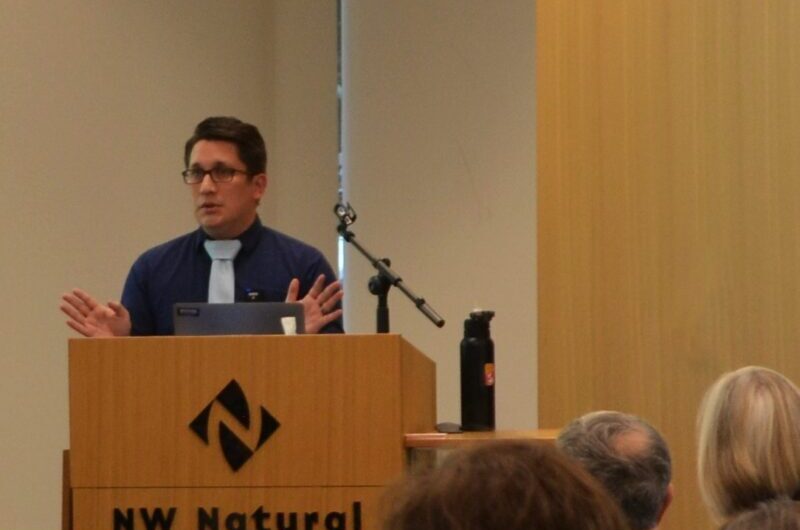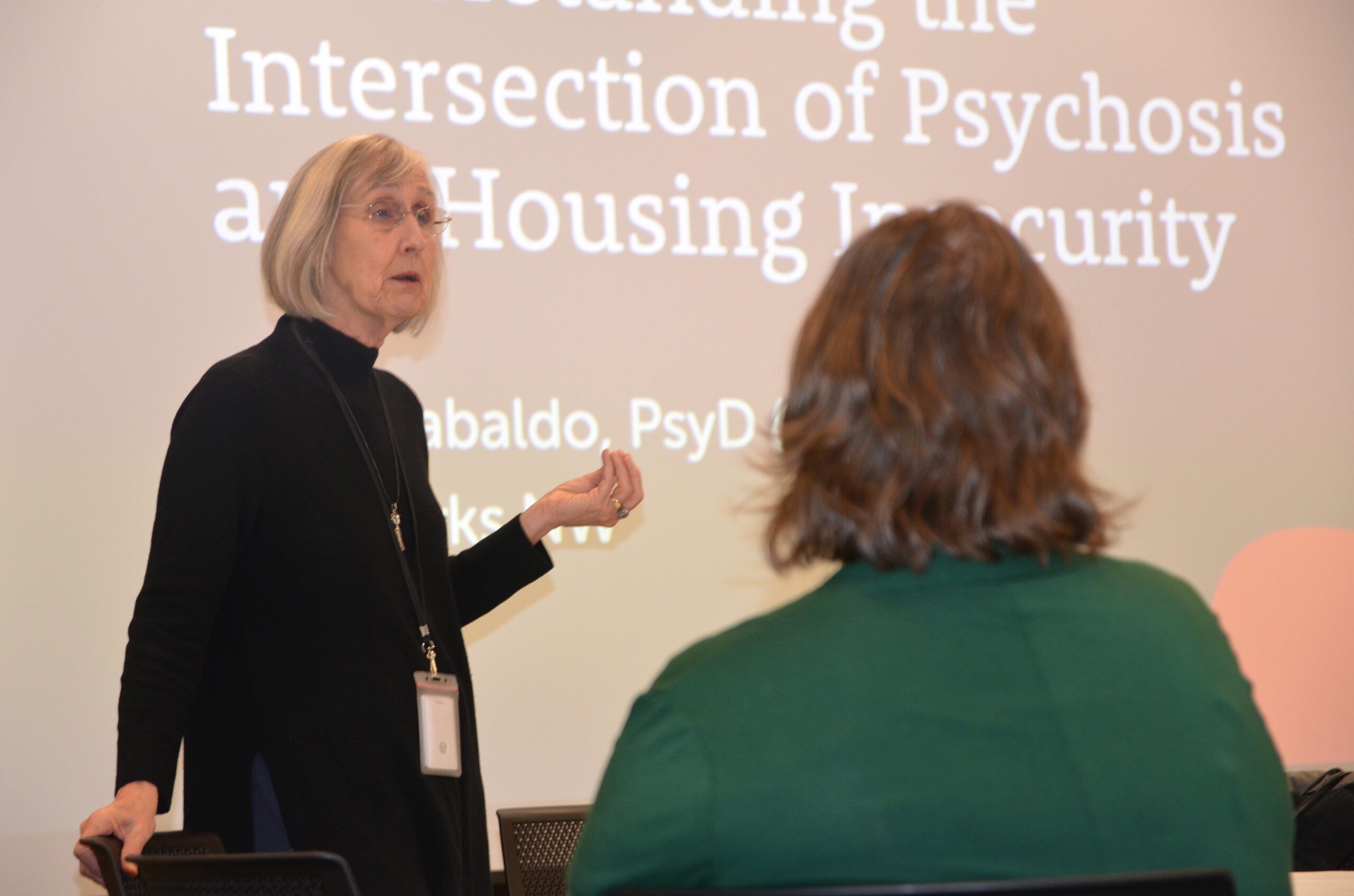Join our Talking Points series for more conversations on mental health, addiction, and prevention in our community. All sessions are free and open to the public
Talking Points series kicks off with conversation surrounding psychosis and houselessness

Many thanks to all who joined us for the re-launch of our speaker series, Talking Points! Nestled in the middle of Mental Illness Awareness Week (October 5-11), Joshua Tabaldo, PsyD, led the conversation, “Understanding the intersection of psychosis and housing insecurity,” addressing topics such as stigma, barriers to care, and housing challenges faced by individuals with psychosis. NW Natural generously hosted the inaugural session.
Karen Warr, Director of Development, kicked off the event with information about the Talking Points series and introduced Dr. Tabaldo, who joined LifeWorks NW in 2012. Since 2022, he has served as Service Director, Severe and Persistent Mental Illness and Residential programs.
Stigma check and the experience of psychosis
The conversation kicked off with a “stigma check” - asking guests what kind of biases they believe are out there about people with psychosis. Immediately, an attendee chimed in that many believe people with psychosis are dangerous, and the room nodded.
"It pains my heart so much whenever I see something on the news, I am hoping that they don’t mention mental health," Tabaldo said. "Hoping that there’s not this association that starts to become engrained that there is dangerousness, and that must be psychosis."
Selective media coverage may continue to promote that myth, but the data shows that the vast majority of people with psychosis never engage in violence. In fact, they are more likely to be victims of a violent crime than perpetrators.


The conversation then shifted to an overview of psychosis and the kinds of experiences people with psychosis may have, such as delusions, hallucinations, and disorganization of speech or thoughts. These elements sometimes occur together.
"One of the challenging pieces of what psychosis looks like and how it presents is that there may be a lot of other reasons why that experience is coming across," Tabaldo explained. For example, certain substances or medications can cause hallucinations, or medical conditions can affect thoughts or speech.
Why housing stability is even more challenging for individuals with psychosis
There is a lot of work happening right now to address housing challenges across the board, and more specifically for individuals living with mental illness. At a systemic level, there are state legislative and local efforts to build more supportive housing or shelters. LifeWorks NW has also shifted how it operates to provide more care in the community for those who may be experiencing housing insecurity. In addition, there are things we can each do as individuals to promote change.
"One of the important things we can do is have a better understanding," Tabaldo said, "You all being here is a great first step. There are so many people who have psychosis who are living their dreams."
He also encouraged attendees to explore other ways to shift the narrative on psychosis by learning more from other avenues, such as the National Alliance on Mental Illness (NAMI) and Portland Hearing Voices.
"The more we all understand psychosis, the more we can help educate other people, too," he said.
‘Where do we go from here?’
There is a great need to address housing for people with severe mental illness. Nearly 2/3 of houseless individuals have a mental health disorder, and a quarter have a severe mental illness.
"Trying to work toward stability [for those with severe mental illness] is extremely challenging already," Tabaldo said, "But then if you don’t have housing at a stable place, it makes it even more challenging." Added to those difficulties are financial barriers, such as job security, application fees or deposits, rental history, or the lack of options that allow people to keep their pets.
He stressed the importance of building up a network of support for individuals with psychosis, a key component of how LifeWorks NW approaches care.
"A lot of our teams are focused on not just supporting the individual but helping advocate for them," he said, "That may be with the landlord, that may be if they are trying to get employment, that may be with other family members, too."


